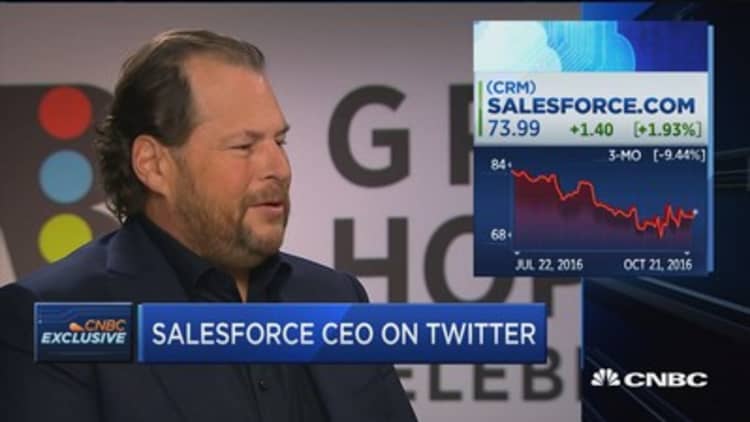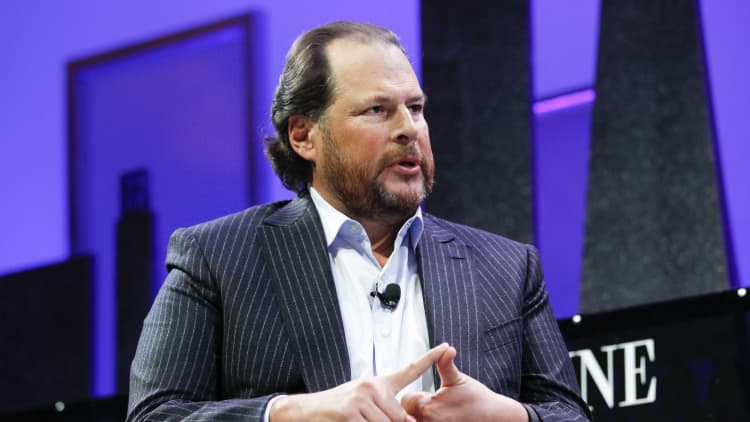Three years ago, Salesforce took a serious look at buying social media giant Twitter.
In the end, CEO Marc Benioff decided to pull out of the deal. He said at the time that Salesforce stockholders had made it very clear that they didn't want the company to pursue the acquisition.
But the actual decision was driven in part by a personal experience, Benioff reveals in his new book, "Trailblazer."
He had a vision that Twitter could integrate well into Salesforce's business, becoming a great way for his customers to reach their consumers. A lot of his advisors were against the idea, saying it would be too complicated and risky. He kept pushing forward anyway.
Then, as he was heading to a meeting to begin to secure financing for the deal, Benioff slipped on a curb and sliced his leg open.

He took it as a sign that he should think twice. He recounted the circumstances in a recent phone interview:
"I slipped on the sidewalk and split my leg, and had other problems with my knee," Benioff said. "As I had blood dripping down my leg as I was pitching the bond-rating firms, [I was] thinking to myself, 'Is this a sign?' Maybe I shouldn't be moving in this direction. But I so strongly loved my vision of what it could become. Eventually our investors, who are a key stakeholder of mine, they said no, we don't really want you to move in this direction."
Benioff has been a huge critic of social media company Facebook, comparing it to cigarettes because the platform uses technology to make it hard to quit. He acknowledged that Twitter has similar problems — "Hopefully they're cleaning it up."
He also criticized CEO Jack Dorsey for his refusal to support Proposition C, which imposes a tax on wealthy San Francisco companies to raise more funds for fighting homelessness. (It passed with less than the two-thirds majority necessary to avoid a legal battle, and is now in the courts.)
"Jack Dorsey was quite against Prop C and helping the homeless, even though between Twitter and Square, they've created between 50 and 60 billion dollars of market cap — or maybe more now [Ed: it's actually around $55 billion as of Monday afternoon] — they were not supporting the major homeless NGOs and major homeless programs. They still aren't."
He adds, "When you're in San Francisco, you and I know that if your stakeholder is not the homeless, I don't know who is."



